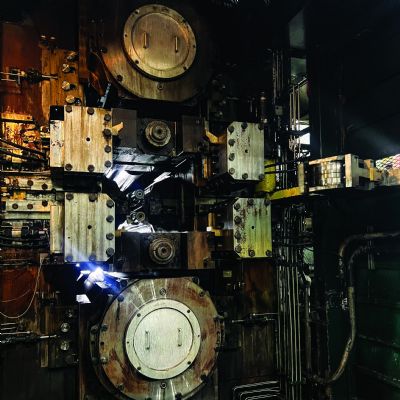 Lou Kren
Lou KrenWhat a Difference Six Years Make
March 31, 2022Comments
Early in March, an interesting report crossed our desks at 3D Metal Printing, summarizing the results of an additive manufacturing (AM)-industry survey on the current and future use of 3D printing. The report, conducted by an independent group for Essentium, reveals strong confidence by manufacturing executives that, as AM matures, it offers the possibility of significantly cutting production costs while increasing revenues.
In the very first issue of 3DMP, in the spring of 2016, I led off my initial Backtalk column with the following: “In the centuries-old industrial timeline, additive manufacturing is merely an infant. And as a relative newborn, it struggles as it grows, yet embodies unlimited potential.”
Only six years later, that potential is being realized.
“Almost all (96 percent) manufacturing executives agree that the industry could save billions in production costs once (AM) technology matures, up from 88 percent in 2018,” the Essentium survey report reads. “The research also reveals that a growing number of manufacturers believe that 3D printing at scale can increase revenues, with 56 percent agreeing that AM will lead to a significant increase in revenue, up from 37 percent in 2020.”
Since 2016, the industry has taken on challenges related to part quality, process efficiency and part volume. Back then, serialized printing was a dream; today it’s becoming reality.
In our Winter 2022 all-digital issue, we recapped what we saw at Formnext this past fall, with many of the new product and service offerings geared toward serialized volume production. This issue of 3DMP offers further proof of advancements. Read how KAM has invested heavily in additive (laser powder-bed fusion technology) and subtractive equipment, as well as process-flow software, to meet job-run requirements of 20 to 50 components. As a supplier of parts to the hypersonic-space sector, 20 to 50 components equals high volume. And, check out an article, A Big Automotive Opportunity for AM, authored by Ramon Pastor, global head and general manager of 3D metals for HP Inc. Here, Pastor outlines how metal binder jetting technology has succeeded in producing at volumes needed to meet automotive requirements. For example, he reports that “Volkswagen employs AM to speed up manufacturing processes and create lightweight components for a number of its vehicles, and has since produced 10,000 metal parts in partnership with HP and GKN.”







 Video
Video
